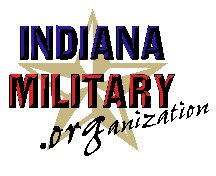|
106TH Cavalry Recon |
|
�FORT JACKSON� Poem by 106TH Cavalry Recon T/5 Rishel White
|
|
106th RECON TROOP SAILS TO EUROPE The Morning Report for November 10, 1944, is short but significant. �RECORD OF EVENTS � Departed staging area this date for unknown destination per verbal order Port Commander B.P.O.E. Embarked from continental limits U.S. this date.� On November 10, 1944, the following units were boarded on the USS Wakefield for transportation to Europe; they were the last of the 10,000 soldiers of the 106th Infantry Division to deploy to Europe:
�81st Engineer Combat Battalion, Division Artillery (589th, 590th, 591st, 592nd) Field Artillery Battalions, Division Artillery Headquarters Battery, 106th Reconnaissance Troop (All above troops from the106th Infantry Division) Plus a Battalion of black Quartermaster troops�
USS Wakefield
Embarkation was from Boston, Massachusetts, and the ship, due to its speed, sailed alone and not in a convoy.
In many cases, Wakefield operated as a "lone wolf", except for air coverage a few miles out of a port. Her primary port of call in the European theater was Liverpool - visited so often in fact that the transport's crew nicknamed her "The Boston and Liverpool Ferry." The average round-trip voyage took 18 days. After D-Day, 6 June 1944, Wakefield began the first of her trips as a casualty-evacuation ship, bringing home wounded GI's. On occasion, she also brought back German prisoners of war for internment in the United States. Debarkation was on November 17, 1944, in Liverpool, England, with everyone arriving in Stow on the Wold, England, at 1400 hours the next day. The entire 106th Infantry Division spent the next two weeks drawing equipment and armament.
�We were issued 3 light tanks before leaving for Europe� Top Left PFC John Ritter and Top Right T/5 Earl Liston (others unknown) On December 7th the Recon Troop arrived in LeHarve, France. On December 12th the 106th Recon Troop was deployed to Grosslangenfeld, Germany, with orders to defend the town and access roads. |
|
The 106th Cavalry Recon Commanders as Remembered By Their Men
Capt.
Ralph Kuzell and Capt. Paul Million What they said about Capt Ralph Kuzell �Capt Ralph Kuzell was our tough commander all through our Basic Training at Ft Jackson. He was a �West (Point) Graduate�. Tough but good. We all wished he would have been our captain in the war. He was promoted to Major and eventually retired a Colonel in Flagstaff, AZ. He died some time ago but his wife is still alive.
�Kuzell was a professional soldier
to his fingertips. He was demanding but fair and not without
humor. He lifted us more than he drove us.� Kuzell knew that Haines had the right stuff so he later assigned him to the 2nd Platoon but he was always striving to get his people to improve. Kuzell told us, �What ultimately am I training you for? I am training you men to be professional murderers! You must prepare for this. We will be sending you out to kill other men who will be trying to kill you.� That really got our attention. (In the fall of 1944 Capt. Kuzell was promoted to Major and transferred to Division headquarters. He was replaced by Capt. Paul Million.) What they said about Capt. Paul Million �During the first days at Grosslangenfeld Capt. Million did not come around to familiarize himself with our defensive positions or to see how the men were doing. Million never voluntarily left the confines of the troop CP. He stayed secluded.� �Captain Million observed that if indeed we eventually had to surrender that he wanted to be as far from the village as possible because we had killed a lot of Germans and there might be reprisals.� �What I can say about Capt Paul Million is that I�m glad they taught us that respect for an officer was given to the uniform and the rank which is not the same as respect for the man.� �Million was worried he�d be court - marshaled for surrendering without authorization.� (From an overheard conversation) Capt Million said, �It looks like we�d better surrender. Lt. Vaream, take a white flag and go up there and tell them.� Without hesitation Vaream shot back, �That�s your job, Captain.� Captain Million blurted out, �But I might get shot.� �In the late summer of 1945 I was walking down one of the streets at Ft Riley and saw Million. The street wasn�t wide and the traffic was light. I know he couldn�t miss seeing me but he just walked on by, and that was just as well.� Footnote: In the Bill Borst diary (Part 1, Indiana Military website, 106th Division) there was a notation on The Map co-authored by Sgt Roy Mechling mentioning a Captain without a name. The notation says: �Capt turned Yellow� (It is written in the map margin with a pointed arrow to Grosslangenfeld.) Captain Paul Million is a strong candidate for this unnamed distinction. |
| source: Ed Strand 02/2016 |
|
|



 Page last revised
09/19/2016
Page last revised
09/19/2016